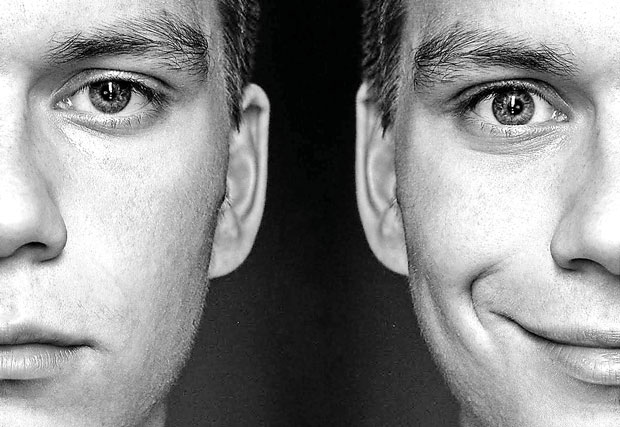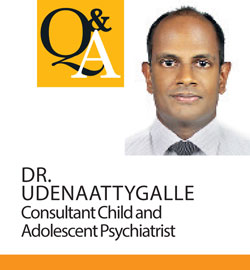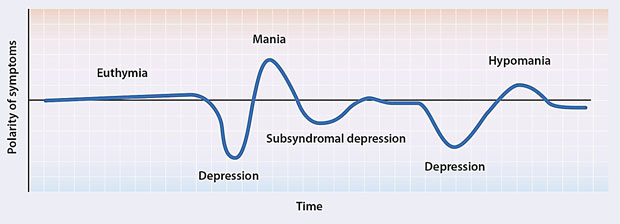01 Sep 2017 - {{hitsCtrl.values.hits}}

QHow can we identify or diagnose a patient suffering from Bipolar Disorder and what are the treatments available for this condition?
Bipolar Disorder or Bipolar Affective Disorder ( BPAD), as the name suggests is a disorder of two extremes. On the one hand there are episodes of extremely low moods and low energy levels called depression. On the other hand there are episodes of extremely elevated moods and energy levels.
These latter episodes are called manic episodes. Those afflicted tend to be relatively well in between episodes. Although this is a very simple way of putting it, this is a complex disorder with many variations. Bipolar doesn’t necessarily mean alternating between depression and mania. There are many differences in the course of the disorder. In fact as the disorder progresses it’s much more common to have more periods of depression.

It’s important to keep in mind that these episodes are clinically significant and the day to day mood swings that we all have at times aren’t related to a disorder.
While the majority of these disorders are manifest in the late teens or early 20’s, some present this condition earlier (early onset) or later (late onset).
Although bipolar Disorder isn’t readily recognised in children, a somewhat similar condition called Disruptive mood Dysregulation Disorder is now recognised. This is a condition where the child’s mood shifts between sever temper outbursts and persistent negativity. These symptoms are much more severe than in the case of a “moody child” and require clinical attention.
In contrast to adults, mania in adolescents can present a bit differently. They may be irritable as well as elated. When depressed, in addition to other features, they are likely to come up with physical complaints and parents may see a marked decline in school work and social withdrawal.
(there has to be many of these symptoms and they have to be persistant and different to the usual behaviour of the person)
As adolescence is in any case likely to be a period of emotional turmoil, it’s important that parents are sensitive to changes that may indicate that their teenagers are struggling with something more than the normal ups and downs of adolescence.
Treatment for BPAD broadly includes medications, psychotherapy, modifying the environment and family based interventions. As this is a complicated disorder it’s best that this is treated by a medical professional well versed in its treatment. As there is a tendency for this disorder to “switch” e.g from mania too depression, medication needs to be carefully balanced and treated. The medications commonly used in this condition are called “mood stabilisers” as they attempt to stabilise the mood from shifting to extremes
Especially in the case with those who go to school and work, certain modifications in these areas may be needed. Excessive stress and lack of sleep have been described as being possible triggers to set off an episode. As such avoiding late night studying and having a plan in place to manage stressful situations like deadlines and exams may be important.

Q How should family members or colleagues be of assistance when coping with a patient suffering from Bipolar Disorder?
With time, relatives who live with those with BPAD are able to recognise early changes in those afflicted with this condition. Early detection is important as this can lead to starting treatment early which will reduce the adverse consequences of a more sever episode. This is also important because when the episodes get sever some may not accept the need to seek treatment.
Between episodes it’s important to note that many function well. However, sometimes, they may require the sensitivity and consideration of their colleagues in certain work related issues. Obtaining help from a friend in school or university going young people is essential. However, it’s important that this is done in a way that helps them return to their usual routines, and not in a way that causes them to be uncomfortable or feel different. After all, there are many brilliant people, who are suspected to have suffered from this condition, who now contribute immensely to society. A Google search will reveal many such famous names.
( there has to be many of these symptoms and they have to be persistant )
23 Dec 2024 2 hours ago
23 Dec 2024 3 hours ago
23 Dec 2024 6 hours ago
23 Dec 2024 7 hours ago